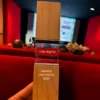Navigating the Agile Path: Revolutionizing Medical Device Industrialization
In the fast-paced world of medical technology, where innovation is paramount and regulatory requirements are stringent, the ability to adapt quickly and efficiently is crucial. The industrialization of medical devices demands a delicate balance between innovation, quality assurance, and regulatory compliance. To shed light on this intricate process, we recently hosted an enlightening webinar titled “Agility in medical device industrialization processes: YES! That’s possible.”
Embracing Agile Methodologies:
The webinar delved into the application of agile methodologies in the industrialization of medical devices. Traditionally, the development and manufacturing of medical devices have followed a linear path, with each stage requiring completion before moving on to the next. However, in today’s dynamic landscape, this approach can be restrictive and slow to respond to evolving market demands.
By contrast, agile methodologies emphasize flexibility, collaboration, and iterative development. They enable teams to adapt to changes quickly, incorporate feedback from stakeholders, and deliver high-quality products efficiently. In the context of medical device industrialization, adopting agile methodologies can significantly accelerate the time-to-market while ensuring compliance with regulatory standards.
Key Insights from the Webinar:
During the webinar, industry experts shared valuable insights and best practices for implementing agile methodologies in the industrialization process. Some of the key takeaways included:
- Cross-Functional Collaboration: Agile teams bring together professionals from various disciplines, including design, engineering, regulatory affairs, and quality assurance. This interdisciplinary approach fosters collaboration and ensures that all aspects of product development are considered simultaneously.
- Iterative Prototyping: Instead of waiting until the final stages of development to test a product, agile methodologies advocate for early and frequent prototyping. This iterative approach allows for rapid refinement and validation of design concepts, reducing the risk of costly errors later in the process.
- Regulatory Compliance: Despite its emphasis on flexibility, agile methodologies do not compromise regulatory compliance. On the contrary, by integrating compliance requirements into the development process from the outset, agile teams can ensure that all necessary standards and regulations are met without sacrificing speed or innovation.
- Risk Management: Agile methodologies prioritize risk management throughout the product lifecycle. By continuously assessing and mitigating risks, teams can proactively address potential issues and ensure the safety and efficacy of the final product.
And other things!
Looking Ahead:
As the medical device industry continues to evolve, the adoption of agile methodologies in the industrialization process will become increasingly prevalent. Companies that embrace agility will gain a competitive edge by bringing innovative products to market faster while maintaining the highest standards of quality and compliance.
In conclusion, our webinar on agility in the industrialization of medical devices provided valuable insights into the transformative potential of agile methodologies. By breaking free from traditional linear approaches and embracing agility, companies can navigate the complexities of medical device industrialization with confidence and efficiency.
If you missed the webinar, don’t worry! You can access the recording. Join us on the path to innovation and excellence in medical technology!




Recent Comments